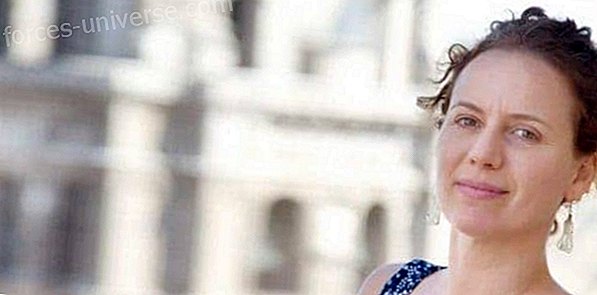
Jetsun Milarepa
(1) Great Tibetan yogi, revered as a national hero and revered as "The Fully Enlightened" by other Asian countries. It is the heroic story of a man capable of transforming, from being a practitioner of black magic to the supremacy of a powerful yogi, pointing the way to self-knowledge and liberation, devoting himself to the attainment of dharma. The path of enlightenment. Milarepa experimented with the elements of consciousness more than any other Buddhist yogi.
(2) Milarepa's grandfather's great grandfather was a powerful Yogi Nyigma. His paternal grandfather wasted family assets in dice games. Fortunately he and his father managed to amass a good fortune through business and the family acquired a fertile farm with three large houses in the Kya Ngatsa valley in Gungthang, Tibet. Inspired by their relatively distant success, a paternal uncle and aunt moved near the prosperous and happy family. It was here in the year of 1052, when Mila "Good News" was born.
At the age of 7, his gentle father contracted a disease from which it was clearly observed that he was not going to recover. Before the father died he delegated the property to his son once he grew up. Until then he entrusted the care of his wife, son and young daughter as well as all his property to his uncle and aunt. This pair proved to be quite severe with the heirs of these properties depriving them of any comfort that was not necessary for minimum subsistence. The mother and her children became dependent servants of the suddenly prosperous and ungrateful family.
After eight years of humiliation, hard work and poverty, the day of redemption finally arrived. For Milarepa's fifteenth birthday, his mother organized a large party to which he invited his uncle and aunt, as well as other family and friends, to carry out the long awaited moment of his release. The farm would be legally yours again. However, uncle and aunt defiantly denied the existence of any desire to return Mila's father's property to his son. They declared that they themselves had been the right and legal heirs of the father's assets. It was only, according to them, the goodness of their hearts that ensured the survival of the unfortunate mother, son and daughter.
Tibet at that time did not have judicial remedies, so there were few ways to resolve the conflict, except for violence. Common sense denied their claims, but despite that, uncle and aunt kept up the challenge. "If you are many, make us war, if there are few, do witchcraft."
A deep hatred was established in the heart of Milarepa's mother. She wisely sent her son to learn to read and write with a Lama Nyigma.
(1) Milarepa arrived one day drunk at the house, so he apologized to his mother, promising to do whatever she wanted. Then his mother asked him to look for a wizard to teach him the sorcery necessary to take revenge on his cousins.
Milarepa met an adept of black magic called Lama Yungtun? Trogyal, "The angry and victorious master of evil, " who was supposed to kill at a distance and send storms to ruin the crops. Having learned the black arts, Milarepa destroyed the house in which one of her cousins' wedding was being celebrated. A witness said he saw the house full of worms, and a gigantic scorpion the size of a yak knocked down the central column of it. Thirty-five people died was the balance, but Milarepa saved his uncles' lives so that they suffered pain and misery. However, the destruction of the house was not enough to satisfy his mother, who asked Milarepa to send hail storms over their crops. This is what Milarepa did, conjuring a terrible hail storm, heavy rains and strong winds.
Milarepa lamented after his actions, although he continued to serve the sorcerer and even achieved a formidable reputation, but never saw his family again. Finally, at the age of 38, he repented, and with the blessing of his teacher he gave himself to the attainment of the dharma. For this he became a disciple of Marpa, founder of the Kargyut? Pa school of Tibetan Buddhism, introducer of the “Short Path to Enlightenment, ” which includes the intense practice of yoga and the development of siddhis or psychic powers.
Milarepa remained with Marpa for six years, during which time he devoted himself to intense spiritual disciplines, beginning with the submission of the will, which is the total surrender of the person to an ideal, body and soul. Marpa relentlessly eliminated Milarepa's will by subjecting him to frequent beatings. He had Milarepa build a stone house just to order him to throw it down, repeating the process several times. After many difficulties, Marpa and Milarepa saved numerous Buddhist writings from the plundering of the Muslims who invaded northern India. Thanks to their efforts, Tibetan literature is today the most abundant of all Buddhist literatures.
At 44, and having already atoned for his acts of sorcery, Milarepa was finally initiated by Marpa. One night Milarepa dreamed that her house was in ruins and that her mother had died. He marched to his house and discovered that everything had happened as he had dreamed. Then he picked up his mother's bones and, according to one version, introduced them in a sack that he used as a pillow for the rest of his days. According to another version, however, Milarepa followed the tradition and turned her mother's bones into tsha? Tshas, or tiny reliquaries, which she placed on the stupa or funerary module. Then he swore that he would live as an ascetic, delivered to meditation, although without entering nirvana, or final liberation from material existence, until all the rest sentient beings would have obtained salvation. Your personal holiness will redeem your parents.
Milarepa then retired to a cave, The White Cave of the Horsetooth Tooth, located in such a high and inaccessible place that no one would bother to look for him, thus satisfying his desire not to Be distracted from your meditations. However, he was visited by his main disciple Rechung Dorje - Tagpa, and by Dzze - se, a girl with whom he had been engaged as a child, but with whom he never married . Milarepa's only meal was broth of nettles, so she lost a lot of weight. His hair and body turned green like the plant whose broth he ingested. The psychic heat helped him withstand the severe cold in his fine cotton cloak. He finally reached a state of pure intellectual enlightenment, and then he could survive by eating amritsa, the ambrosity of the gods. During her years of hermit, Milarepa allegedly developed even more incredible psychic powers. He was seen flying, and was traveling outside his body not only to any part of the Earth, but also to other planes and other worlds, where he had discussions with spiritual masters; It could also be transformed into a flame, a bird or a stream of water. These powers attracted upon him the unfavorable attention of those who were interested in using them to obtain material advantages, so Milarepa left his cave and moved to an area near Mount Everest, stopped Walking in Lap? Chi, in a place known as Entre R os.
Once there, a jealous lama of his powers and named Tsaphuwa, sent one of his concubines to Milarepa to be offered poisoned curd. Thanks to his clairvoyance, Milarepa knew about the plan, but in spite of that he ate what was offered. He explained to the concubine that the poison could not harm him, although he was ready to leave life anyway. He quoted all his disciples and for many days he preached to them about the Real Truth and the law of karma, while intoning innumerable hymns. Heaven and earth were filled with deities who came to listen to the sound of a delicate celestial music.
Finally, Milarepa fell ill and sank into samadhi, the prelude to nirvana. He was already 84 years old. In the funeral pyre he revived his body, and then resurrected in the Indestructible Body, which is the fusion of the spiritual body with the phenomenal body. The flames rose around the funeral pyre and Milarepa sang a last hymn before sinking into a trance in the Clara Luz, part of the first stage of the Bardo? Thodól (“Between Two”), the state after the death. Cremation was accompanied by all kinds of mysterious and wonderful sounds and lights. Reportedly, the sky became a mandala that dropped flowers while bright kites crossed it.
After the fire was extinguished, the disciples were deeply frustrated to discover that the dakinis ("heavenly walkers", female incarnations of the total wisdom of the Buddha), had taken all the bones and ashes. In order to calm them down, the Dakinis offered them the last and magnificent vision of a great chaitya (reliquary), in which they projected the image of Milarepa before taking it eastward with the accompaniment of sighs and celestial music.
The songs and hymns that Milarepa composed throughout his life continue to be interpreted in the current Tibet, where they also revere the places where he is said to have been.
(3) The Song of the Seven Truths
To you, Marpa the Translator, my reverence;
I beg you to increase the mind-bodhi in me.
Whatever the beauty of a song,
It will only be a sound for those
They don't catch the truth.
If a parable is not consistent with the teaching of the Buddha,
in spite of how much eloquence he may have
It will not happen to be just a simple echo.
If one does not practice dharma,
though
proclaim himself very learned in the doctrine,
It will only be a self-deceived.
To live in solitude is to imprison oneself,
if one does not practice the instruction of the Oral Transmission.
Working in the field is nothing but a punishment,
if one neglects the teaching of the Buddha.
For those who don't keep their morale,
Prayers are only wishes.
For those who do not practice what they preach,
The oratory is a perfidious lie.
Avoid bad actions in themselves sins;
To do good deeds is to gain merit.
Stay alone and meditate alone.
Too much talk is of no avail.
Follow my song and practice dharma!
Unlike religious leaders, Milarepa never tried to build a temple or form a sect, or organize any kind of order. His life was that of a begging yogi who lived in the most remote mountains, wandering from one place to another as a troubadour who preached the holy dharma to whom he would listen. Although in his time he was ridiculed by Buddhist scholars who branded him an ignorant hermit, history has proven that his teachings have been superior and far-reaching than those of those literate.
COLLECTED BY KIKO MIRROR
Sources:
(one)
(2)
(3) The Hundred Thousand Songs of Milarepa (“The Hundred Thousand Songs of Milarepa”),
Here is a page about his movie:
And here a small fragment of it in Chinese with English subtitles:






